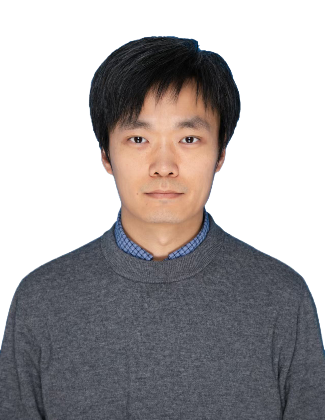
直播时间:2024年8月20日(周二)20:00——22:00
直播平台

科学网APP
https://weibo.com/l/wblive/p/show/1022:2321325069446375932005
(科学网微博直播间链接)

科学网微博

科学网视频号
【直播简介】
北京时间8月20日晚八点,iCANX Youth Talks第六十九期邀请到了北京纳米能源与系统研究所唐伟,东华大学侯成义,南方科技大学林苑菁三位教授主讲,西北工业大学于海东教授担任研讨嘉宾,清华大学张莹莹教授担任主持人,期待你一起加入这场知识盛宴。
【嘉宾介绍】

唐伟
北京纳米能源与系统研究所
可穿戴运动传感的准确性和稳定性研究
[ABSTRACT]
In recent years, wearable sensors, as a type of flexible and portable sensing device, have been able to monitor human motion and health information in real time for extended periods, thus providing important data for subsequent clinical diagnosis and treatment, which has attracted widespread attention. However, existing wearable sensors still face multiple challenges in practical applications, including how to accurately map the sensed data to physical health, how to reduce sensor drift during operation, thereby enhancing the accuracy and stability of monitoring, etc. This report will address the above issues, taking wearable motion sensing as an example, to discuss the use of multimodal sensing combined with artificial intelligence analysis methods to achieve accurate diagnosis of muscle strength levels, and the realization of discrete, high-stability stretching sensing based on triboelectric encoders, to aid the practical application of wearable sensing.
近年来,可穿戴传感器作为一种柔性便携的传感器件,可长期实时监测人体运动健康信息,进而为后续的临床诊断和治疗提供重要依据,受到广泛关注。不过,现有的可穿戴传感器在实际应用中,仍面临多方面的挑战,包括获取的传感数据如何精准映射肌体健康,如何降低传感器在工作过程中的漂移,从而提升监测的准确性和稳定性等。本报告将针对以上问题,以可穿戴运动传感为例,讲述利用多模态传感结合人工智能分析手段实现肌力等级的准确诊断,和基于摩擦电编码器实现离散化高稳定性的拉伸传感,助力可穿戴传感的实际应用。
[BIOGRAPHY]
Prof. Wei Tang, from Beijing Institute of Nanoenergy and Nanosystems, Chinese Academy of Sciences, obtained his bachelors and doctoral degrees from Peking University in 2008 and 2013, respectively. In recent years, he has been committed to the research of nanogenerators and wearable electronics, achieving a series of important results. He has published more than 100 academic papers as the corresponding/first author, including in journals such as Nat. Energy, Nat. Commun., Adv. Mater., etc., with an SCI citation count exceeding 11,000 times, an h-index of 60, and has been selected as one of the top 2% scientists in the world by Elsevier, a member of the Youth Innovation Promotion Association of the Chinese Academy of Sciences, and one of the excellent young scientists in 2023 by Materials China. He has presided over the National Natural Science Foundation of China, major projects of the Beijing Municipal Science and Technology Commission, and sub-topics of the National Key Research and Development Plan, among others. His achievements have been awarded the Second Prize of Science and Technology of Beijing, one of the 100 new technologies of the Zhongguancun Forum (China national-level platform), and frontier academic achievements in the capital region.
唐伟,中国科学院北京纳米能源与系统研究所研究员,于2008年和2013年取得北京大学学士和博士学位。近年来致力于纳米发电机与可穿戴电子的研究,取得了一系列重要成果,以通讯/第一作者发表学术论文100余篇,包括Nat. Energy、Nat. Commun.、Adv. Mater.等,SCI引用超过1.1万次,h 因子60,入选Elsevier全球前2%顶尖科学家、中国科学院青年创新促进会会员、材料人2023年优秀青年科学家,主持国家自然科学基金,北京市科委重大项目,国家重点研发计划子课题等,成果获评北京市科学技术二等奖、中关村论坛(国家级平台)百项新技术、首都地区前沿学术成果等。

林苑菁
南方科技大学
面向数字健康的柔性电化学传感器件与集成系统
[ABSTRACT]
To realize comprehensive and reliable health monitoring, real-time physiological monitoring technology in molecular level is urgently demanded. Current biosensing technology encounters the challenges of simultaneously enhancement on sensitivity and stability, as well as system integration without external connections. Our research focused on high performance electrochemical devices, flexible biosensors and monolithically integrated systems for wearable and digitalized healthcare applications. To realize controllable construction of highly sensitive and stable biosensors, the design of conformal and interpenetrating interfaces was proposed to realize continuous and stable monitoring of biomarkers at micro-molar levels. Moreover, to tackle the challenge of monolithic integration of multi-functional devices, highly precise and controllable strategies for functional materials deposition and compatible device integration were developed towards wearable and non-invasive physiological applications. These research aims at advancing the wearable biosensing technology towards proactive healthcare
分子量级的理化指标实时监测技术对于实现对人体健康状态更全面、准确的监测有重要意义。然而现有生物传感器难以兼顾高灵敏度与稳定性,分立器件需通过外部连接构建集成传感系统,限制其应用。课题组研究聚焦高性能柔性传感器与单片集成系统。针对高灵敏度、高稳定性生物传感器的可控构筑,提出共形、渗透型界面设计,实现微摩尔级别理化指标的连续稳定监测;此外,针对多功能器件柔性单片集成挑战,提出高精度、高可控性的功能材料沉积、器件兼容集成策略,构筑可穿戴无创生理监测集成系统,从而促进主动健康技术发展。[BIOGRAPHY]
[BIOGRAPHY]
Dr. Yuanjing Lin currently serves as an Assistant Professor in School of Microelectronics, Southern University of Science and Technology. Her research interests mainly focus on using nanostructured materials and novel fabrication techniques to realize printable and wearable electrochemical sensors, energy storage devices for their applications in intelligent self-powered systems, health monitoring, environment monitoring, intelligent robotics, etc. So far she has more than 40 journal publications, such as Nature Nanotechnology, Nature Communications, Science Advances, Advanced Materials. Dr. Lin also serves as the editorial board member for Biosensors, Journal of Micromechanics and Microengineering, and the editorial board young member for Journal of Semiconductors. She was also shortlisted as one of the Rising Stars Women in Engineering of 2019 Asian Deans’ Forum, and Nanoscale 2024 Emerging Investigators.
林苑菁,南方科技大学深港微电子学院助理教授,博士生导师。2014年取得南开大学电子科学与技术学士学位, 2018年获得香港科技大学电子与计算机工程系博士学位。2019年起加入加州大学伯克利分校电气工程和计算机科学系从事博士后研究。2020年加入南方科技大学深港微电子学院,建立柔性微纳器件实验室。研究立足于数字健康需求,致力于将材料制备、器件优化、大数据智能分析与移动式健康医疗监测应用结合,利用纳米材料及柔性制备技术实现微纳传感器、能源存储器件及可穿戴智能集成系统等。迄今于Nature Nanotechnology, Nature Communications, Science Advances, Advanced Materials等期刊发表40余篇学术论文。目前担任Biosensors, Journal of Micromechanics and Microengineering编委,Journal of Semiconductors青年编委。入选2019亚洲校长论坛30名未来之星女性工程学者,2024 Nanoscale Emerging Investigators等。

侯成义
东华大学
传感与交互纤维电子器件
[ABSTRACT]
Flexible electronic materials and devices has attracted considerable interest. The current research in the field of wearable technology has demonstrated the feasibility of creating flexible devices in a wearable form. However, the majority of these devices lack flexibility or are not stretchable, making them difficult to weave. They are primarily used as an add-on to garments and lack the wearing comfort of traditional clothing. In contrast, fibres, which are commonly used in the manufacture of clothing, are more suitable physical carriers of electrical functionality. It seems reasonable to posit that fibres will emerge as a novel generation of flexible electronic devices, with smart clothing products based on fiber-electronics becoming a common feature of peoples lives in the near future. A series of fiber-electronic materials and devices have been prepared using continuous processes. Notably, the challenge of preparing fiber-electronics on a large scale in a continuous manner has been addressed. The potential applications of these electronic devices in intelligent interaction, environment and body sensing are further validated.
因可穿戴技术的发展,柔性电子材料与器件获得了大量关注,目前可穿戴领域的研究相继展示了“佩戴”形式的柔性器件,但多数仍缺乏柔韧性、或不可拉伸、难以编织,其主要作为服装的附加品,缺乏穿着舒适性。相比之下,纤维作为常用的服装材料是更合适的电学功能物理载体,有望成为更理想的可穿戴功能集成平台。鉴于此,我们认为纤维将成为新一代柔性器件形态,基于纤维电子与织物电子的智能服装产品在不久的将来会进入人们的生活。我们利用界面自组装、熔融纺丝和静电纺丝等连续化工艺制备了一系列新型纤维、织物电子材料与器件,特别是实现了多组分多界面电学纤维的万米级制备,解决了纤维状电子器件难以连续化大规模稳定制备的问题。进一步通过演示实验验证了这些新型电子器件在智能交互、环境特征因子检测与体征传感等领域的应用价值。
[BIOGRAPHY]
Prof. Chengyi Hou, a Full Professor at Donghua University, is engaged in the development of innovative methods and experimental approaches to address the key scientific and technical challenges related to the scalable synthesis, processing and assembly of smart fibres and fabrics. The innovative fibre and fabric materials have the potential to be used for a variety of applications, including health monitoring, personal thermal management and human-machine interaction. They also have the potential to be incorporated into next-generation clothing. Chengyi Hou has edited one book on the topic of smart clothing and has published over 60 peer-reviewed journal articles on smart fibres and wearable materials. Several of these have been published in leading academic journals such as Science, Science Advances, Nature Communications, Advanced Materials, ACS Nano, etc.
侯成义,东华大学研究员,博士生导师。2014年博士毕业于东华大学。主要从事智能纤维材料与器件研究。作为通讯作者在Science、Science Advances、Nature Communications等期刊发表60余篇SCI论文,获授权20余项中国发明专利,1项美国专利。研究成果被Science、Nature、中央电视台、新华社等报道。
【主持人】

张莹莹
清华大学
【研讨嘉宾】

于海东
西北工业大学
特别声明:本文转载仅仅是出于传播信息的需要,并不意味着代表本网站观点或证实其内容的真实性;如其他媒体、网站或个人从本网站转载使用,须保留本网站注明的“来源”,并自负版权等法律责任;作者如果不希望被转载或者联系转载稿费等事宜,请与我们接洽。